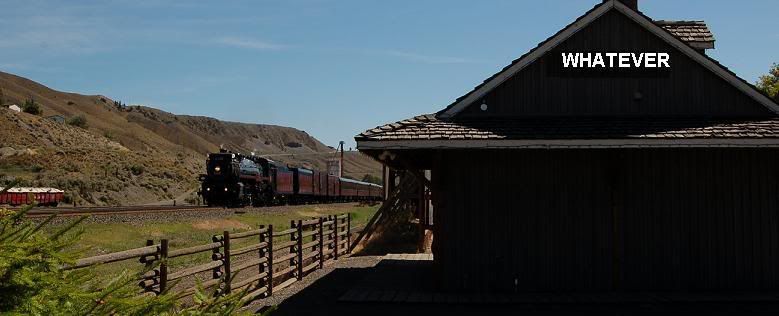By Phil CoffeyRALEIGH, N.C. -- The Carolina Hurricanes, also-rans in the minds of most hockey experts prior to the start of the 2005-06 season, now rule the NHL.
Displaying unbelievable energy and courage, the Hurricanes got off the canvas after losing Games 5 and 6 to beat the Edmonton Oilers, 3-1, to win the Stanley Cup in the seventh-and-deciding game of what was a long and memorable season.
Rookie goaltender Cam Ward was terrific in the win and the series and was named the winner of the Conn Smythe Trophy as the most valuable player of the postseason.
"It's unbelievable," Ward said, summarizing the feelings of most of his teammates. "Your childhood dream of winning the Stanley Cup finally comes true and all that work you put forth through minor hockey and junior, it's all paid off from today."
The game will go down in Stanley Cup lore as one of the most frenzied and intense in history, with the pace just incredible throughout and the sellout crowd of 18,978 standing throughout, creating a deafening din for almost the entire game.
Defensemen Aaron Ward and Frantisek Kaberle gave the 'Canes a 2-0 edge that was halved by an Edmonton goal by Fernando Pisani. But at 18:59, with Oilers goalie Jussi Markkanen on the bench, Justin Williams scored an empty-net goal that sealed the deal and sparked a huge celebration from the crowd.
Entering Game 7, historical stats favored the Hurricanes, as home teams had won 11 of 13 Game 7s in Stanley Cup Final history. But the Oilers appeared to have more gas left in the tank after pulling even in the series after dropping three of the first four games. The Hurricanes seemed finished after a 4-0 loss in Game 6 in Edmonton, but Carolina lived up to its motto of "Whatever It Takes" and somehow summoned the energy and grit to become champions.
"No way in Game 7 we were gonna lose before our fans, no way," defenseman Glen Wesley said."
"We really had to earn that one," said Carolina winger Ray Whitney, a former Oiler stickboy as a kid and whose father, Floyd, still works for the team and has been a practice goalie for the team. "This is an unbelievable feeling. I had the opportunity to watch this back in the 1980s.
"It was relentless," Whitney said of the effort. "All season long, we have been a very focused group. Working our tails off all year. They gave us everything that we could handle."
For a host of veteran Hurricanes like Whitney, the 2006 Final was seen as their last and best kick at the can. Wesley had played 1,479 regular-season games and 168 playoff games in 18 seasons before finally being able to lift the Cup high Monday night. He appeared at a postgame press conference with his wife and three children surrounding him.
After Carolina captain Rod Brind'Amour accepted the Stanley Cup from NHL Commissioner Gary Bettman, the 'Canes' captain gave it to Wesley.
"I don't know what to feel," Wesley said. "It's unbelievable. It honestly feels like a dream to me. It's the best feeling. ... 18 years to be able to play the game, very blessed and fortunate. The guys were outstanding. I think everybody stepped up. An awesome effort."
Center Doug Weight could not play in Game 7 because of a severe shoulder injury. He skated in the morning warm-up, but was unable to go. When he took the Stanley Cup, he was unable to lift the Cup high overhead because of the injury.
"This is an amazing group of guys," Weight said. "It's a wonderful place. I knew we would have a great game."
As for the shoulder, Weight looked forward to lots of rehab with a smile, knowing he had finally won his first his Stanley Cup.
The contest was tight throughout, but the 'Canes had some anxious moments in the third period when Edmonton's Pisani halved the Carolina lead at 1:03 of the third period, converting the third shot of a scoring sequence by the Oilers. After making an initial stop on Raffi Torres, Ward also denied Rem Murray, but kicked the rebound out to a driving Pisani, who scored his 14th goal of the playoffs to make it 2-1.
With 3:40 remaining, Ward again denied Pisani with an incredible save that preserved the one-goal lead. Ward made an initial stop on Torres, but couldn't control the rebound, as Ward stretched his left leg as far as possible and he was able to get his skate on Pisani's rebound attempt, a save that prompted another thunderous roar from the frenzied crowd.
That was the Oilers' last gasp, a bitter disappointment for a gritty and resilient team that entered the playoffs as the eighth-seeded team in the Western Conference. The Oilers survived the loss of their No. 1 goalie, Dwayne Roloson in the series opener and rallied from a 3-1 deficit to come to the cusp of a Stanley Cup championship.
"We'll get over the disappointment, but that's pretty hard to do right now," a somber Craig MacTavish said after the game. "I told the players we didn't do ourselves a disservice in this game."
MacTavish looked back at blowing a lead in Game 1 as perhaps the turning point for his team in this series.
"When you get to this level, you can't leave anything in the table," he said. "We may have left one on the table in Game 1. We didn't lose the series tonight. Give them a lot of credit the way they bounced back from a sub-par effort in Game 6."
The crowd of 18,978, which sang both national anthems like their counterparts in Edmonton, stood for most of the game as the overall pace was insane for two teams that had played more than 100 games. The 'Canes were playing their 107th regular season/playoff games, while the Oilers were playing their 106th regular season/playoff contest.
The Hurricanes bolted from the gate with the opening drop and jumped into the lead just 1:26 into the game when Aaron Ward blasted a shot from the top of the right circle past a screened Markkanen.
Mark Recchi and Matt Cullen were very effective along the boards, keeping the puck in play along with winger Andrew Ladd. Recchi moved the puck to Ward, who pinched in to the top of the circle and let fly as Ladd and Cullen drove to the net to create screens, with the puck eluding Markkanen.
There was plenty of controversy at the end of the period. With a delayed penalty coming up on the Oilers' Ethan Moreau, the Hurricanes drove into the Edmonton end and a bizarre series of events took place. Rod Brind'Amour attempted to put a shot on goal, but it bounced into the slot, where Craig Adams then chipped a shot on the Edmonton net. Markkanen sprawled to make the save, but the puck went over him, appeared to be tipped by Ales Hemsky and then fell into the crease, where Oilers defenseman Steve Staios dove into the net to keep the puck out.
Referee Brad Watson initially signaled for a penalty shot, but the officials huddled and decided that the Oilers had touched the puck before the goal-mouth scramble, prompting the whistle to end the play before the pileup. Hence, no penalty shot for covering up the puck in the crease. But, the 'Canes did get a power play that carried over to the second period.
"With a delayed penalty about to be called by the back referee (Bill McCreary) for a high stick by Edmonton player Ethan Moreau, Oilers' defenseman Steve Staios deliberately bats the puck in the crease, which constitutes control and the play is considered dead," NHL Senior Vice President and Director of Officiating Stephen Walkom said. "Referee (Brad) Watson, who was unaware that a delayed penalty was being called, was waiting for a play that would constitute a normal stoppage. Batting the puck by a player in the defensive zone does not constitute a stoppage. Referee Watson stopped the play when the Oilers' players covered the puck. He was then informed by referee McCreary of the delayed penalty, which required play to be stopped at the moment when control was achieved by the batting of the puck by Staios."
The first period was played like a track meet, with thunderous hits and all-out efforts that typified how important the game was to the respective teams.
Brind'Amour set the tone right away, throwing a heavy check into Raffi Torres, who had done the same to the 'Canes in Games 5 and 6.
Ward made a nice stop off a Sergei Samsonov blast two minutes in, but the 'Canes were showing a hunger spirit that had been missing in the previous two games. A strong hitting shift by the 'Canes ended when Eric Staal was called for hitting Markkanen behind the net. The ensuing Oilers' power play forced Ward to make three solid saves. Midway through the period, Ward made another strong save when Radek Dvorak made a nice shot from in close off a Samsonov pass.
Edmonton killed off a penalty to defenseman Matt Greene at 17:33, and the Oilers also killed off the penalty to Moreau early in the second that had spawned all the controversy at the end of period one.
Erik Cole's speed was too much for Oilers defenseman Jaroslav Spacek to handle at 4:10 of the second period, and he was boxed for holding, a penalty that proved immensely costly at 4:18 when Carolina defenseman Frantisek Kaberle's shot from the rim of the left circle changed direction and speed after hitting diving Oiler defenseman Jason Smith, dipping between the legs of Markkanen for a 2-0 Carolina lead.
Brind'Amour wasn't credited with an assist on the goal, but he made the key play, deflecting an Edmonton clearing pass just enough for teammate Matt Cullen ?to corral at the blue line. Cullen moved the puck to Cory Stillman, who spotted Kaberle in the clear for the vital second goal.
The Hurricanes dodged a huge bullet late in the period. First, Niclas Wallin was called for hooking Ryan Smyth at 16:16, giving the Oilers a power play that became a two-man advantage at 16:21, when defenseman Aaron Ward was called for delay of game after sending the puck into the crowd, giving the Oilers the 5-on-3 edge. The Oilers were 0-for-4 in the Final with the two-man edge and it became 0-for-5 as Carolina goalie Cam Ward made a series of saves. Edmonton's opportunity ended early when Smyth was called for hooking Wesley at 17:21.
The Oilers tested Ward late in the period, but the rookie goalie rose to the occasion, somehow seeing the puck through multiple screens to make saves on Chris Pronger and Ales Hemsky.







